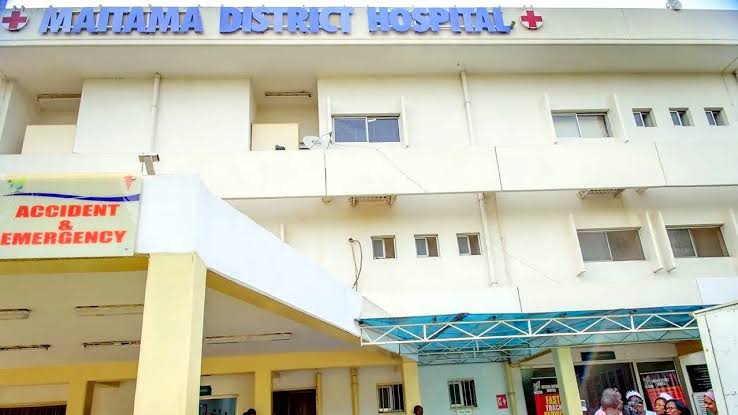By the 2017 Compulsory Treatment and Care for Gunshot Victims Act in Nigeria, any hospital, whether public or private, is required to provide immediate medical care to individuals with gunshot wounds, without the need for a police report or an initial financial deposit.
However, the hospital must promptly inform the nearest police station within two hours of the start of treatment and notify the victim’s family or relatives within 24 hours.
However, despite the existence of this essential legal framework, the harrowing reality is that many hospitals across the country continue to demand police reports before rendering the medical care that these victims desperately need.
This is a violation of the law and a breach of the fundamental principles of compassion, medical ethics, and human rights.
Greatness Olorunfemi’s tragic death
The tragic and senseless death of Greatness Olorunfemi in Abuja, as a result of a horrifying encounter with a syndicate known as “one chance,” serves as a stark reminder of the urgent need for immediate action to address the state of emergency medical care and the security situation in the nation’s capital.
Greatness Olorunfemi, a community developer and dedicated member of the Young African Leaders Initiative Network (YALI), lost her life when she was stabbed and pushed out of a moving vehicle by this criminal syndicate. What makes this tragedy even more heart-wrenching is her subsequent ordeal at Maitama General Hospital, which allegedly demanded a police report before providing the medical attention she so desperately needed.
A video circulating on social media showed Olorunfemi’s lifeless body parked at the entrance of the locked emergency unit.
However, according to the hospital’s management, she was officially pronounced dead upon her arrival. There are also reports indicating that an investigation has been initiated to determine both the cause of her death and the validity of the hospital’s claims.
This development, however, does not negate the concerns surrounding hospitals in the country requesting police reports before an emergency treatment. There have been other incidents over the years.
Other recorded cases
One such case was that of Ebenezer Ayeni, who armed robbers shot in his Ibadan residence on June 11, 2021. Two hospitals in Ibadan rejected him because there was no police report. Sadly, Ebenezer died without medical care, after two hours of fighting for his life.
Another is Linda Igwetu, a youth corps member, who was shot by the police a day before her passing out in Abuja in July 2018. She was taken to the hospital but was not treated because of the lack of a police report. She died a few hours later.
Emmanuel Akomafuwe, a graduate, was not to be forgotten but was shot by the police at a checkpoint in Lagos State in April 2019. He was rushed to the hospital with his girlfriend, Adaugo who was also shot, but they were both refused treatment because of the lack of a police report. His girlfriend died while he survived.
These incidents highlight the pressing need for an immediate review of the procedures and regulations governing the provision of emergency medical care. No life should ever hang in the balance due to the demand for a police report.
The National Health Act of 2014 explicitly prohibits the refusal of emergency medical treatment for any reason, and this legislation must be upheld and enforced.
Addressing the issue
Nigeria’s National Assembly must take decisive action to address this grave issue. An unequivocal law must be passed to further criminalise any hospital or medical professional that denies treatment to victims of gunshot or stab wounds. This legislation should include stringent penalties for hospitals and medical practitioners who continue to engage in this wrongful practice.
This legislation should also bring Nigeria in line with international standards of medical care and human rights. It should align the nation with the global consensus that medical professionals have a sacred duty to prioritize human lives and provide treatment without prejudice or discrimination.
